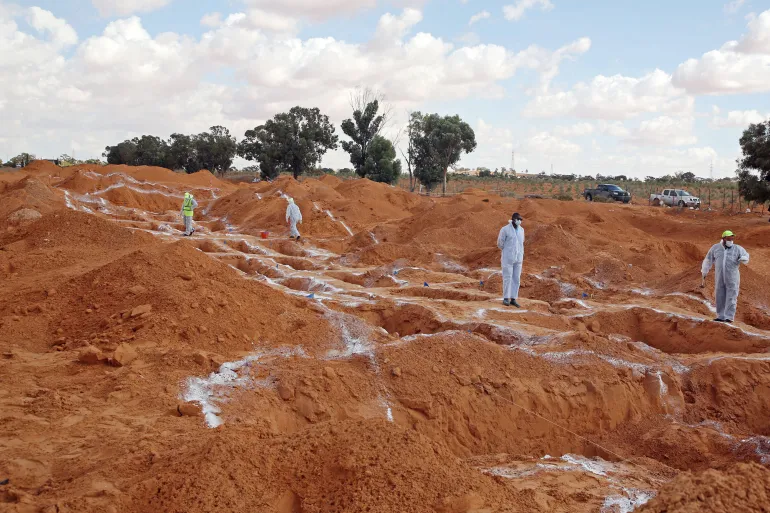ICC unseals arrest warrants for 6 Libyans

The International Criminal Court has unsealed arrest warrants for six men allegedly linked to a militia in Libya accused of killings and other crimes in a town where mass graves were discovered in 2020, according to Africa News via AP.
Libya has been rocked by instability ever since the 2011 uprising and NATO intervention killed long-time ruler Muammar Gaddafi back in 2011. The country has since been split between rival governments in the east and west, each with different foreign sponsors and militias supporting them.
ICC Prosecutor Karim Khan said his investigation has found evidence “indicating that Tarhunah residents have been subjected to crimes amounting to war crimes, including murder, outrages upon personal dignity, cruel treatment, torture, sexual violence, and rape.”
The warrants were against six individuals: Abdelrahim al-Kani, Makhlouf Douma, Nasser al-Lahsa, Mohammed Salheen, Abdelbari al-Shaqaqi and Fathi al-Zinkal.
Khan claimed that half of the suspects were leaders or senior members of the Al Kaniyat militia that controlled Tarhunah from at least 2015 to June 2020, and the other half were Libyan security officials linked with the militia at the time of the alleged crimes.
READ: Libya: Tripoli forces prepare for Haftar-led attack
Warrants were first issued for four of the suspects in April 2023, and the next two were also issued that July but were kept under seal. “It is now my view that arrest and surrender can be achieved most effectively through the unsealing of these warrants,” Khan said.
The discovery of the mass graves in Tarhunah followed the withdrawal of the militia, which came after the collapse of a 14-month campaign by Khalifa Haftar to win control of Tripoli from a group of militants linked to the former United Nations-recognised government.
The ICC does not itself have a police force to implement its rulings and relies on co-operation from its 124 member states to make sure the arrest warrants are enforced. Karim Khan has said his office is “seeking to work closely with Libyan authorities so that these individuals can face the charges against them in a court of law” and working with court officials to seek their arrest.
READ: 100,000 Sudanese refugees enter Libya after crossing Sahara
The ICC opened an investigation into Libya back in 2011 at the request of the United Nations Security Council. Arrest warrants were quickly issued for suspects including Muhammar Gaddafi, who was killed before he could face trial, and his son, Saif Al-Islam Gaddafi, who is still wanted by the court.
AP
Want to chase the pulse of North Africa?
Subscribe to receive our FREE weekly PDF magazine














